How To Wash Hair Without Shampoo: 9 Simple Ways To Try
You don't always need a chemical-based product to wash your hair, and here's how.
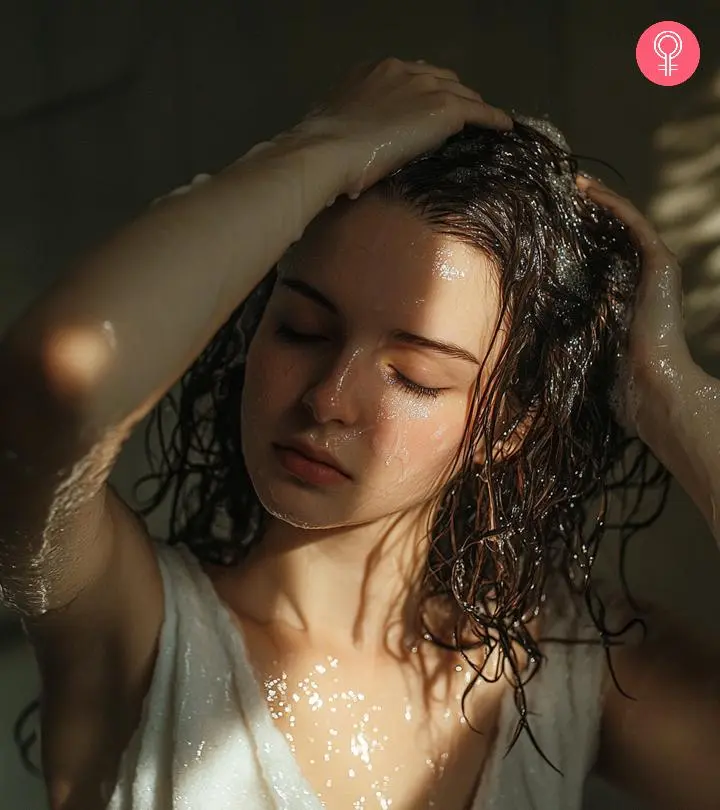
Image: Midjourney/ StyleCraze Design Team
Shampoos not only make your hair look great but may also damage it. The harsher ingredients and other chemicals in shampoos may disturb the scalp’s natural balance. But you can’t wash hair without shampoo, can you? Or are there alternative methods to achieve healthy and shiny locks naturally? This article explores why you should avoid shampoos and the many ways you can wash your hair without them. Keep reading.
 Fun Fact
Fun FactIn This Article
Why You Should Avoid Shampoo Once In A While?
A survey conducted by YouGov, an Internet-based market research community, found that Americans were marginally more likely to use shampoo and conditioner on a daily basis (41% agreed to the statement ‘I liked washing my hair everyday’ vs. 50% disagreed) than the French (26% vs. 54%), British (30% vs. 63%), or German (36% vs. 59%).
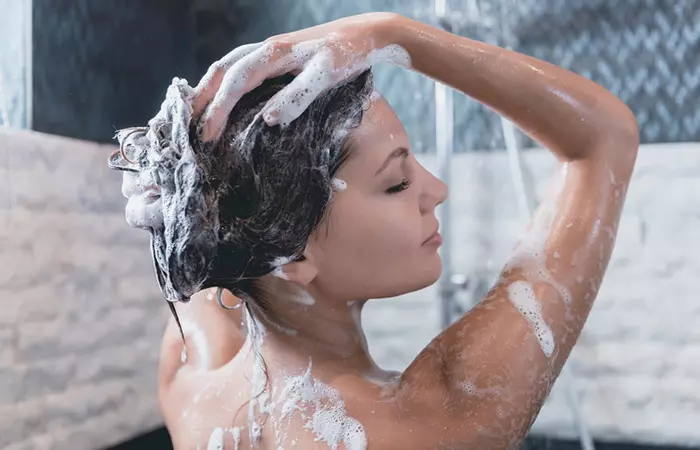
Shampoos contain detergents that clean your hair easily. But certain ingredients in shampoos can cause scalp irritation and make your hair dry and brittle. They may also cause hair loss in the long run. Skipping shampoos has some benefits:
- Less exposure to potentially harmful chemicals
- Better hair volume
- Improved scalp health
- Improved production of natural scalp oils
So, can you wash your hair without shampoo? There are quite a few natural alternatives to shampoos. These are easy to use and promote long-term hair and scalp health. However, if you are curious about the effects of skipping shampoo altogether, check out what happens if you don’t wash your hair.
Key Takeaways
- Baking soda is an effective cleanser and acid neutralizer that can replace shampoo. It works great for oily, straight hair.
- Bentonite clay is used as a hair cleanser and softener as it draws out excess oil and dirt from the scalp. It can be a good alternative to shampoo.
- Washing your hair with only water is a natural alternative to shampoos as it eliminates the use of sulfates.
9 Ways To Wash Hair Without Shampoo
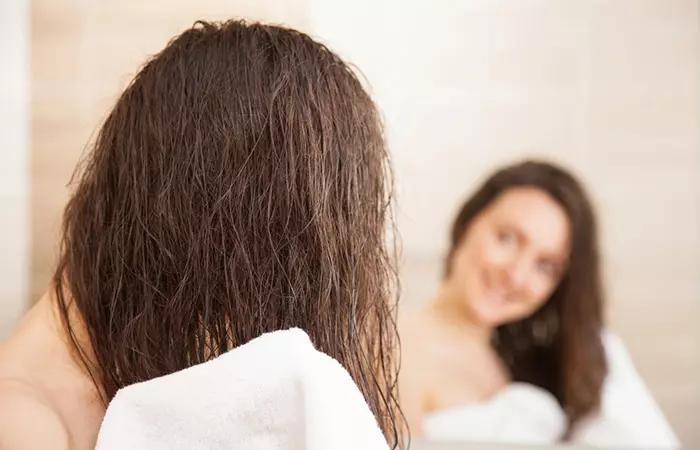
1. Baking Soda
Baking soda (sodium bicarbonate) has a pH of 9. It works as an effective cleanser and acid neutralizer. Anecdotal evidence suggests that the alkaline pH helps remove build-up and dirt from your scalp and may improve hair health. It works great for oily, straight hair. Here are some advantages and disadvantages of using baking soda as an alternative to shampoo.
Suitable For: Oily or straight hair.
Pros
- It is said to possess antifungal properties that help fight against dandruff.
- It protects your hair from environmental pollutants.
- It removes excess oils and restores hair shine.
- It does not weigh your hair down.
- It soothes an itchy scalp and softens your hair.
- It adds volume and body to your hair.
Cons
- Your scalp has a standard pH of 4 to 5. But baking soda will likely throw your scalp pH out of balance. Hence, you will have to neutralize this effect with an apple cider vinegar rinse.
- It can be too harsh on sensitive scalps, potentially causing redness or discomfort.
- Frequent use may strip your hair of natural oils, making it feel dry or brittle.
2. Apple Cider Vinegar
Apple cider vinegar (ACV) has a pH of 4.5 to 5.5, similar to that of the scalp. This pH brings your hair back into balance, adds strength, and promotes good hair hygiene. The vinegar is also believed to control bacterial infections that may otherwise lead to scalp issues (1). ACV specifically offers relief to oily hair. However, pure ACV will degrade your hair. Hence, dilute it with a carrier oil before applying it to your scalp.
Suitable For: Oily hair.
Pros
- ACV restores balance and promotes hair strength.
- It may help control bacterial infections that could cause scalp issues.
- It offers relief to oily hair by balancing oil production.
- ACV can add shine and smoothness to hair.
Cons
- Pure ACV may damage your hair.
- Overuse can cause dryness or irritation to the scalp.
- Some people can be allergic to it.
3. Lemon Juice
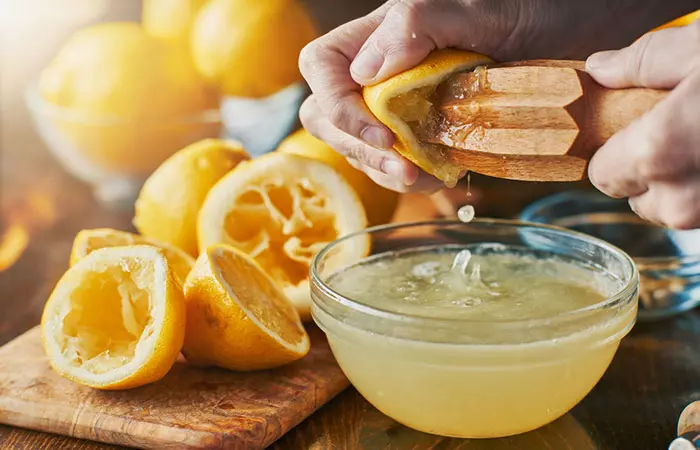
Lemon juice also has a low pH and helps restore the natural hair balance. It also boosts scalp health. It has antibacterial properties that can help treat dandruff and make your hair thick and shiny (2). It is a natural degreaser and works perfectly for washing your hair. Lemon juice is also suitable for oily hair or hair with no volume. It has astringent properties that may help remove the excess oil and dirt from the scalp (3).
If you have oily hair, you may squeeze the juice of a lemon into a cup of warm water. Apply the mixture to your scalp and massage for some time. Rinse.
Suitable For: Oily hair and those looking for shine.
Pros
- Lemon juice helps remove buildup and excess oils from the scalp.
- It has natural antibacterial properties that can help with dandruff and scalp issues.
- It can add shine and make your hair look brighter.
- Lemon juice can balance the pH of the scalp.
Cons
- It can dry out your hair if used too often due to its acidity.
- Lemon juice may irritate sensitive scalps or cause itching.
- Overuse can lead to hair damage, making it brittle.
- It may not thoroughly cleanse hair if there is heavy product buildup.
4. Bentonite Clay
Bentonite clay has great moisturizing properties and draws out excess oil and dirt. It has been widely used as a hair cleanser and softener (4). It offers deep moisturization and helps treat dry and damaged hair. It also reduces hair frizz and protects hair from heat damage. You can make this clay into a paste and apply it along the length of your hair. You may use an apple cider vinegar rinse as a conditioner.
Suitable For: Dry, damaged, or frizzy hair.
Pros
- It helps remove dirt, oil, and impurities from the scalp.
- It promotes hair softness and shine.
Cons
- It can dry out the hair if used too frequently.
- It may be hard to fully rinse out, leading to buildup.
- It can be messy to apply.
- Using it too often may disrupt the natural oils of your scalp.
5. Light Rye Flour
Light rye flour works for all hair types and is a very mild hair wash. Anecdotal evidence suggests that it helps treat itchy and dry scalp, dandruff, and greasy hair. It is packed with minerals and vitamins essential for your hair (5). It works without disturbing the natural pH balance of your hair. This flour is also rich in vitamin B5 known for its anti-inflammatory properties (6).
You can mix two tablespoons of light rye flour with water and apply the paste to your hair evenly. Leave it on for 20 to 30 minutes and rinse with water.
Suitable For: All hair types, especially dry or itchy scalps.
Pros
- Light rye flour can cleanse the scalp and hair naturally.
- It helps absorb excess oil and dirt without stripping hair’s natural moisture.
- It may promote hair growth due to its vitamin and mineral content.
- Rye flour is gentle and less harsh on the scalp compared to some commercial shampoos.
- It can make hair feel soft and healthy.
Cons
- It may not fully remove heavy product buildup.
- Rye flour may leave residue on hair if not rinsed properly.
- It is not suitable for those with gluten sensitivities or allergies.
- It might not work as well for people with very oily hair.
6. Dry Shampoos
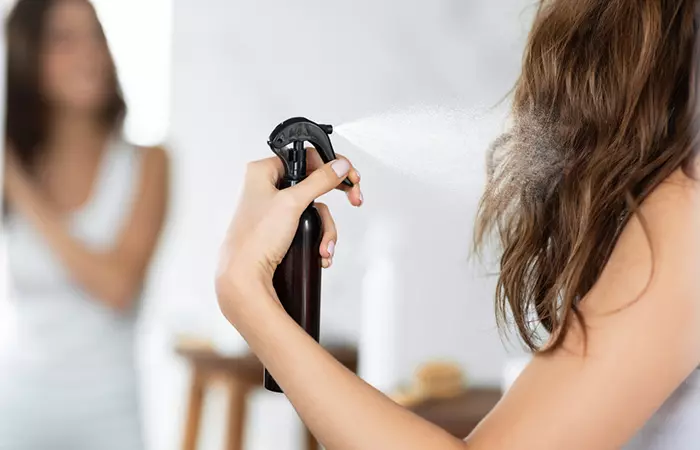
Shampooing your hair every day can make your hair dry by stripping off the natural oils from your scalp. So, instead of washing your hair daily, you can use dry shampoos. These shampoos work by absorbing the excess oils from your scalp and hair between your hair wash days without leaving your hair dry and messy. Also, dry shampoos offer wonderful fragrances and make your hair look fresh.
Lyn, a beauty blogger with combination hair, shares her experience of using dry shampoos. She uses it regularly. She says, “Without dry shampoo, if I wash my hair before bed the night before, it’s limp and stringy by the following late afternoon or evening. With dry shampoo, I can go between 36-48 hours without washing my hair, but that’s it. I’m fine with that” (i).
Suitable For: Oily or combination hair or those with busy lifestyles.
Pros
- It is a quick and convenient way to freshen up hair between washes.
- It absorbs excess oil, leaving hair looking cleaner without water.
- It helps extend the life of your hairstyle.
- It is great for travel or busy days when washing hair isn’t possible.
Cons
- It can build up on the scalp with frequent use.
- It may leave residue or white powder on darker hair.
- It doesn’t cleanse the scalp as thoroughly as traditional shampoo.
- It can make hair feel dry or stiff if used too often.
7. Co-Washing
Co-washing, or conditioner-only washing, suits those with drier or curlier hair. Wash your hair with a conditioner like you would with a shampoo. Let the conditioner sit for a couple of minutes over your hair. Rinse with lukewarm water. Remember not to use hair care products with silicones. Products with silicones may make your hair smooth and shiny but also leave a residue.
Suitable For: Curly, dry, or damaged hair.
Pros
- It cleans hair gently without stripping natural oils.
- Co-washing adds moisture and helps maintain hair’s natural texture.
- It reduces frizz and enhances curl definition.
- This method is less drying compared to traditional shampoos.
Cons
- It may not be effective for oily hair or heavy product buildup.
- It can leave hair feeling weighed down or greasy if overused.
- It might not cleanse the scalp as thoroughly as shampoo.
- It can lead to product buildup over time if not properly clarified.
8. African Black Soap
African black soap is favored for hair washing due to its natural, chemical-free composition. It contains nourishing ingredients such as plantain peel, cocoa pods, and shea butter, which cleanse the scalp, remove product buildup, and provide moisture (7). The soap’s gentle yet effective cleansing properties make it a viable option for those seeking a natural and holistic approach to hair care. The antimicrobial properties of the soap may also help improve scalp health (8).
Suitable For: Dry, damaged, or sensitive scalps.
Pros
- The soap naturally cleanses hair and scalp without harsh chemicals.
- It moisturizes and helps balance the scalp’s natural oils.
- It may help in soothing irritated skin.
- It is good for treating dandruff and scalp issues.
- It promotes hair growth due to its nourishing ingredients.
Cons
- It may dry out hair if used too frequently.
- It can be too harsh for sensitive scalps or fine hair.
- It needs to be diluted properly to avoid excessive dryness.
- It can leave a residue if not rinsed out well.
- It may not completely remove ingredients like silicone.
Hadassah Agbaps, a natural hair blogger, writes about how she could not remove silicone from her hair with African black soap. Though she uses black soap to cleanse and clarify, it did not work well in removing silicone. She writes, “African Black Soap is usually a good clarifying, gentle and cheaper alternative to regular shampoo. It gives me clean results most times and the foaming action is sometimes welcome after a long stint of foamless cleansing. It’s also very convenient as I can clean up from head to toe. However, it was not strong enough to get rid of the silicone and left my hair feeling sticky and dull looking….like there was a cast on it (ii).”
9. Castile Soap
Castile soap is an excellent choice for hair washing because it’s a plant-based, natural cleanser without harsh chemicals. It’s gentle on the hair and scalp but effectively removes dirt and product buildup. It promotes clean, healthy, and nourished hair and is suitable for most hair types.
Suitable For: Works for most hair types, including sensitive skin.
Pros
- It is gentle, plant-based soap made from natural oils like olive oil.
- It is non-toxic and free from synthetic fragrances and preservatives.
- It deeply cleanse while being gentle on the scalp.
- It can be used for multiple purposes (body wash, face wash, etc.).
Cons
- It may leave hair feeling dry or stripped if not followed by conditioner.
- It can be too strong if used in high concentrations or undiluted.
- It is not ideal for people with very dry or curly hair without a moisturizing follow-up.
If you experience dryness or irritation from alternative washing methods, follow up with a nourishing conditioner or natural oil like argan or coconut oil to restore moisture. To prevent buildup, use a clarifying rinse, such as diluted apple cider vinegar, every few weeks. If your hair feels weighed down, reduce the frequency of use or opt for lighter alternatives.Always do a patch test before applying any of these products on your scalp to avoid potential allergic reactions.
Also, if you want to wash your hair without using any of these ingredients, it is not a bad idea. Keep reading to learn more about the benefits.
Benefits Of Washing Hair With Only Water
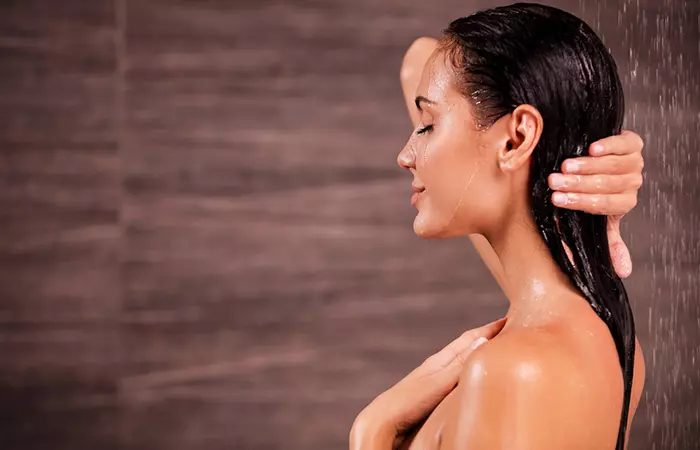
Maintaining healthy hair does not always require commercial hair care products or hair treatments. Washing your hair with only water is a natural alternative to shampoos. Frequent washing of hair with shampoos can strip off the natural scalp oils and lead to product build-up. Water-only washing eliminates the use of sulfates in shampoos that otherwise make your hair brittle and dry. (if you have dry hair and scalp). It also helps in the even distribution of the hair’s natural oil (sebum).
If your hair is tangle-prone, washing with water alone along with a deep conditioning hair mask can help. The hair strands have a rough surface. With more natural oils left on the scalp, your hair strands will glide over each other and not tangle as much.
Sometimes water-only washing works best on curly, thick, coily, and coarse hair types. These hair textures are often prone to dryness, and using water alone helps retain hair moisture. A deep conditioning mask will help seal the moisture after washing.
Other Tips For Washing Hair Without Shampoo
- Oil-based hair cleansing can promote strong and healthy hair by providing moisture to the cuticles.
- Dry shampoos can absorb excess oil and grease from your scalp and give your hair a refreshed look.
- Aloe vera is another natural alternative to shampoos and is known for its moisturizing properties. It has antibacterial and anti-inflammatory properties and can help prevent dandruff (9). Apply aloe vera gel to your scalp. Massage it thoroughly for a few minutes and rinse your hair with lukewarm water.
In addition, regular hair cleaning and hair maintenance, along with natural hair care techniques, can leave your tresses clean and healthy.
 Quick Tip
Quick TipInfographic: Points To Remember For Washing Hair Without Shampoo
Washing your hair without shampoo may improve scalp health and growth. However, results may differ for individuals as not everyone has the same scalp and hair texture. So, you should be careful before switching to this method.
Check out the infographic below to know what you should be aware of about washing your hair without shampoo. Illustration: StyleCraze Design Team
Shampoos help clean your hair and scalp. However, they may also damage it as shampoos contain harsher ingredients and chemicals. Therefore, you can skip shampoos once in a while and wash your hair without shampoo. It will help improve your scalp health and boost the production of natural scalp oils. You may follow the tips mentioned above to wash your hair without shampoo. Observe your hair and how it reacts after using the suggested alternatives. If you notice any positive results, continue using them to achieve strong, healthy, and luscious hair.
Frequently Asked Questions
How to get oil out of your hair without shampoo?
Dr. Anna Chacon, MD, FAAD, a double board-certified dermatologist, says, “Simply sprinkle baking soda over your hairline and scalp using a cosmetics brush.”
If shampoo works, why does the no-poo method exist?
According to Dr. Chacon, “The no-poo approach is all about maintaining healthy and clean hair, and many who swear by it feel that not using shampoo is the greatest way to keep their hair clean. Many shampoos contain chemicals like sulfates and silicones, which deplete your hair’s natural oils.”
How long does it take for your hair to adjust to no shampoo?
It may vary from one week to six months, depending on your hair type, previous products used, and scalp condition.
Is it okay to wash hair once a week?
Yes. If your hair and scalp are dry and don’t attract much dirt and grime, it is okay to wash your hair once a week. You can increase the frequency if you have oily hair.
Does washing hair less make it healthier?
It is all about striking the right balance. You should wash your hair as often as you feel the need to, as dirty and oily tresses may lead to scalp-related problems, hair fall, and other issues.
Will your hair grow faster if you don’t use shampoo?
No. Shampooing does not have any effect on your hair growth. It is because the process of hair growth is internal, while shampooing only cleanses the surface of the hair and scalp.
Illustration: How To Wash Hair Without Shampoo: 9 Simple Ways To Try
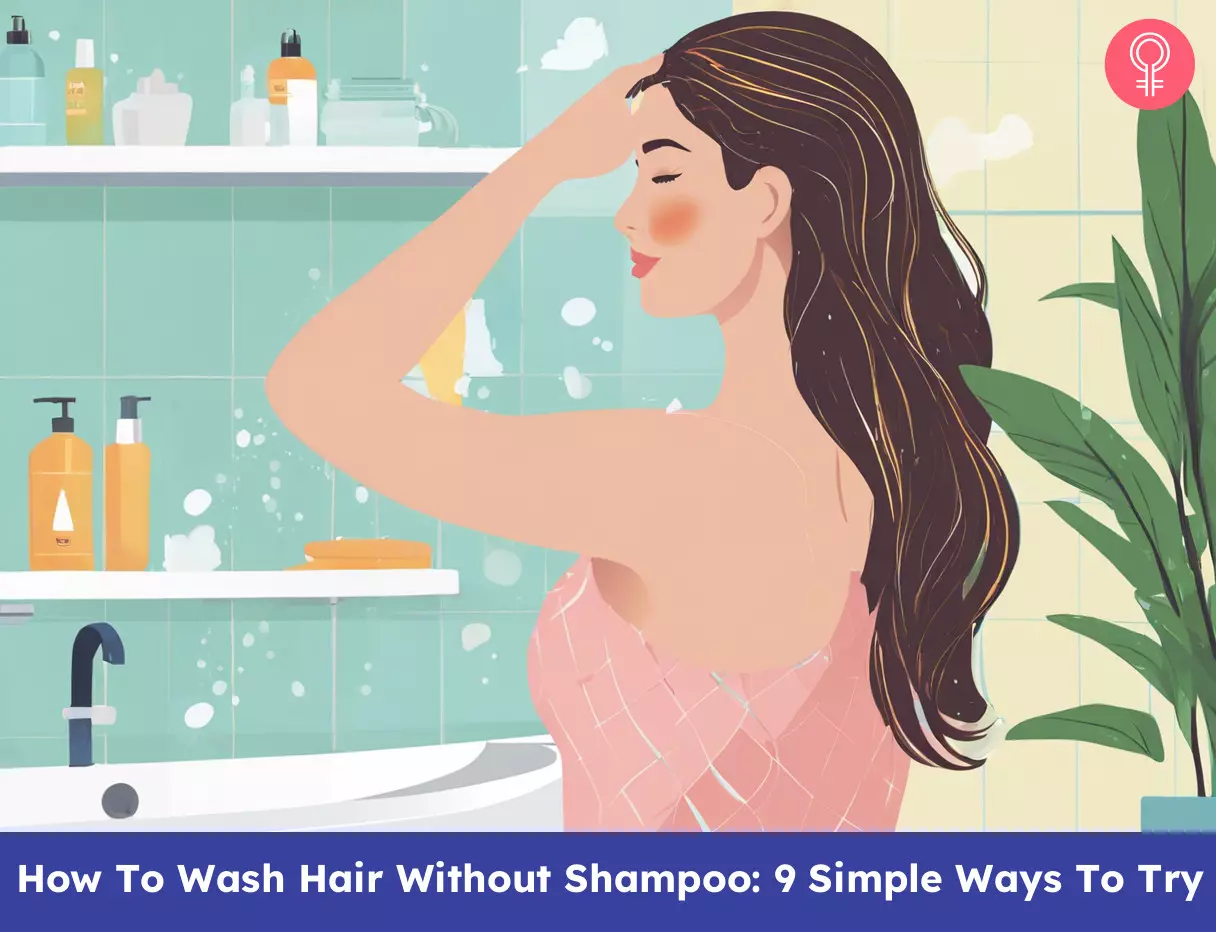
Image: Stable Diffusion/StyleCraze Design Team
Learn how to keep your hair clean and healthy without using shampoo! Watch this video to discover the NoPoo method and get the best results for your hair!
Personal Experience: Source
StyleCraze's articles are interwoven with authentic personal narratives that provide depth and resonance to our content. Below are the sources of the personal accounts referenced in this article.
i. My favorite dry shampoo: Batiste Cherryhttps://cheapasf.blogspot.com/2015/12/my-favorite-dry-shampoo-batiste-cherry.html
ii. My experience using silicone as a sealant on my natural hair
https://www.nappilynigeriangirl.com/2015/05/my-experience-using-silicone-as-sealant.html
References
Articles on StyleCraze are backed by verified information from peer-reviewed and academic research papers, reputed organizations, research institutions, and medical associations to ensure accuracy and relevance. Read our editorial policy to learn more.
- Preparation and Optimization of Garlic Oil/Apple Cider Vinegar Nanoemulsion Loaded with Minoxidil to Treat Alopecia
https://pmc.ncbi.nlm.nih.gov/articles/PMC8706394/ - A Preliminary Evaluation of the Antibacterial Activity of Lemon Fruit Juice, Mondia whitei Ethanolic Extract, and Their Combination Against Streptococcus mutans
https://pmc.ncbi.nlm.nih.gov/articles/PMC11460347/ - Conventional vs. Organic: Evaluation of Nutritional, Functional and Sensory Quality of Citrus limon
https://pmc.ncbi.nlm.nih.gov/articles/PMC10706168/ - Bentonite Clay as a Natural Remedy: A Brief Review
https://www.ncbi.nlm.nih.gov/pmc/articles/PMC5632318/ - Flour, rye
https://fdc.nal.usda.gov/food-details/2512375/nutrients - Thiamine, Nicotinic Acid, Riboflavin and Pantothenic Acid in Rye and Its Milled Products
https://jn.nutrition.org/article/S0022-3166(23)13367-0/abstract - Discovering Black Soap: A Survey on the Attitudes and Practices of Black Soap Users
https://pmc.ncbi.nlm.nih.gov/articles/PMC5605219/ - African black soap: Physiochemical, phytochemical properties, and uses
https://pubmed.ncbi.nlm.nih.gov/33571401/ - The Review on Properties of Aloe Vera in Healing of Cutaneous Wounds
https://pmc.ncbi.nlm.nih.gov/articles/PMC4452276/
Read full bio of Dr. Shruti Chavan
- Dr. Anna Chacon, MD, FAAD, is a double board-certified dermatologist with over 7 years of experience. She has authored many peer-reviewed articles and managed clinical research studies during her fellowship. She completed her medical school in the PLME (Program of Liberal Medical Education) at Brown University.
 Dr. Anna Chacon, MD, FAAD, is a double board-certified dermatologist with over 7 years of experience. She has authored many peer-reviewed articles and managed clinical research studies during her fellowship. She completed her medical school in the PLME (Program of Liberal Medical Education) at Brown University.
Dr. Anna Chacon, MD, FAAD, is a double board-certified dermatologist with over 7 years of experience. She has authored many peer-reviewed articles and managed clinical research studies during her fellowship. She completed her medical school in the PLME (Program of Liberal Medical Education) at Brown University.
Read full bio of Arshiya Syeda
Read full bio of Ramona Sinha
Read full bio of Medha Deb







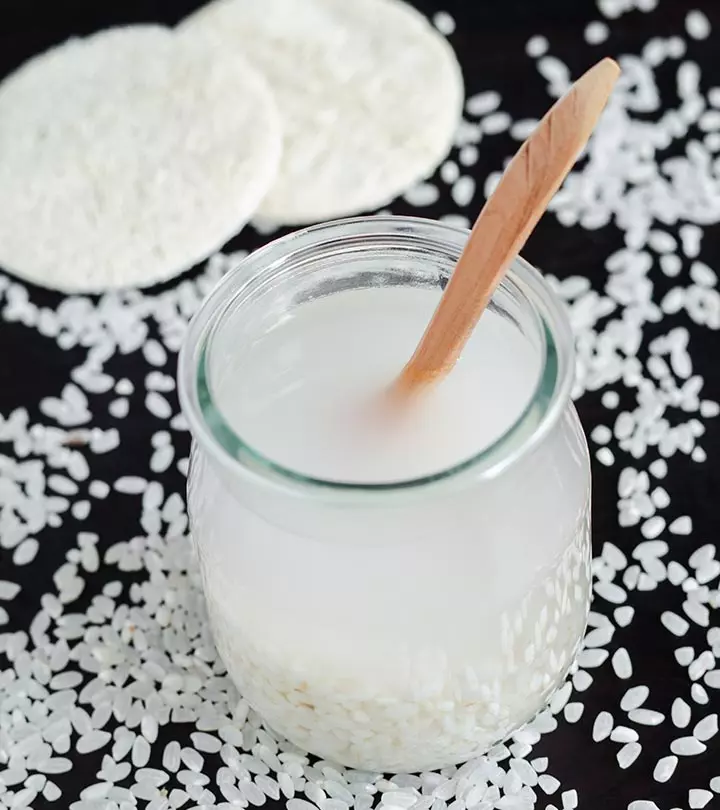
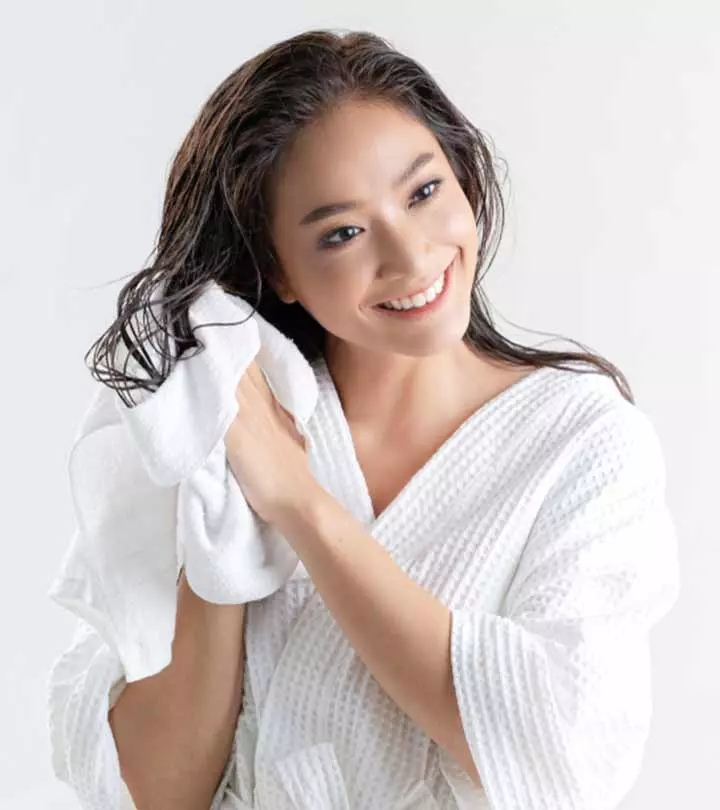
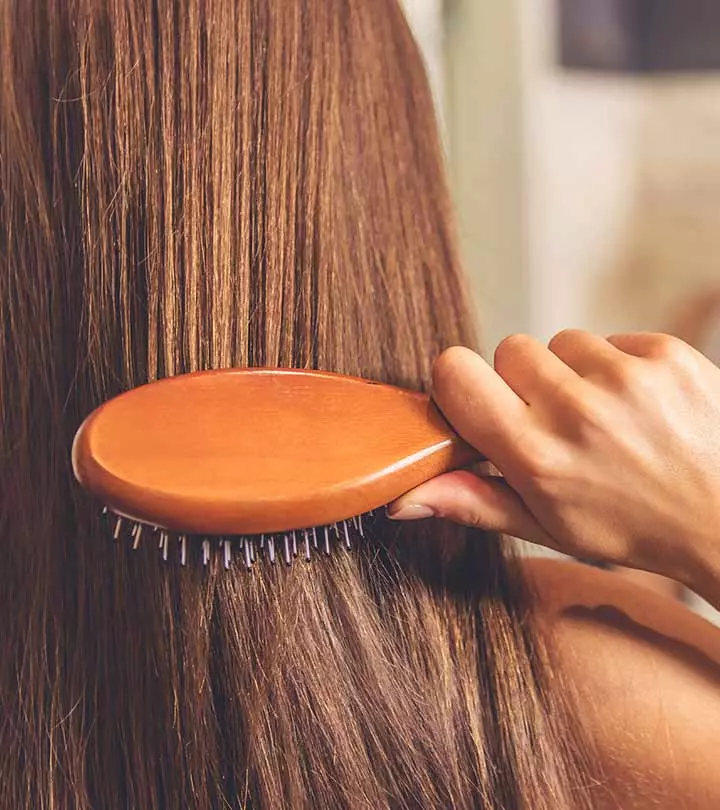
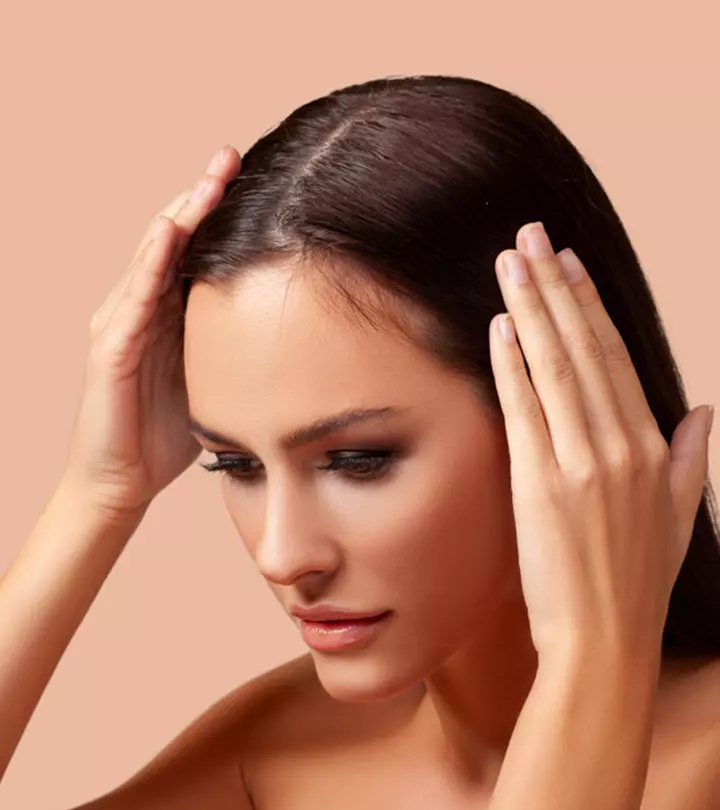
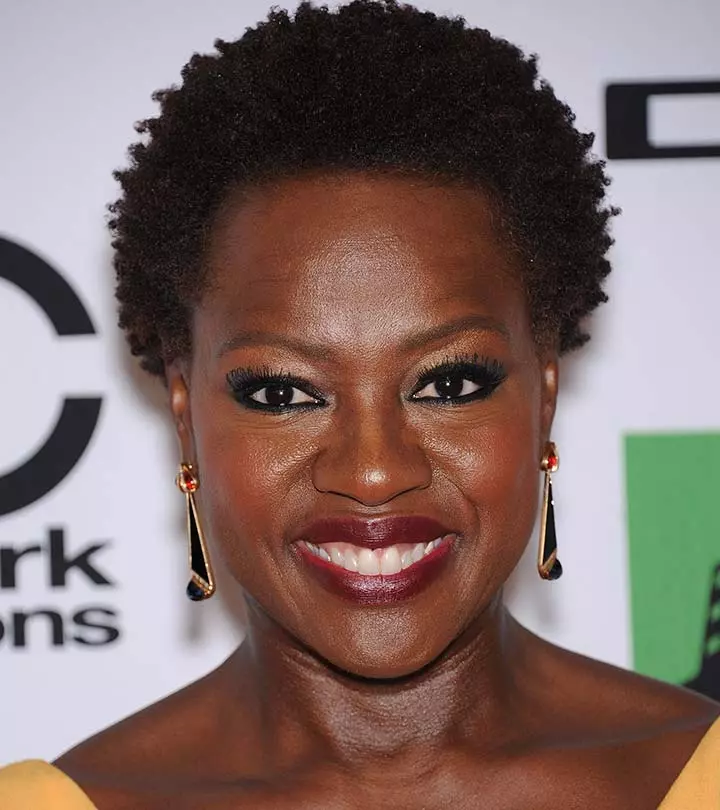
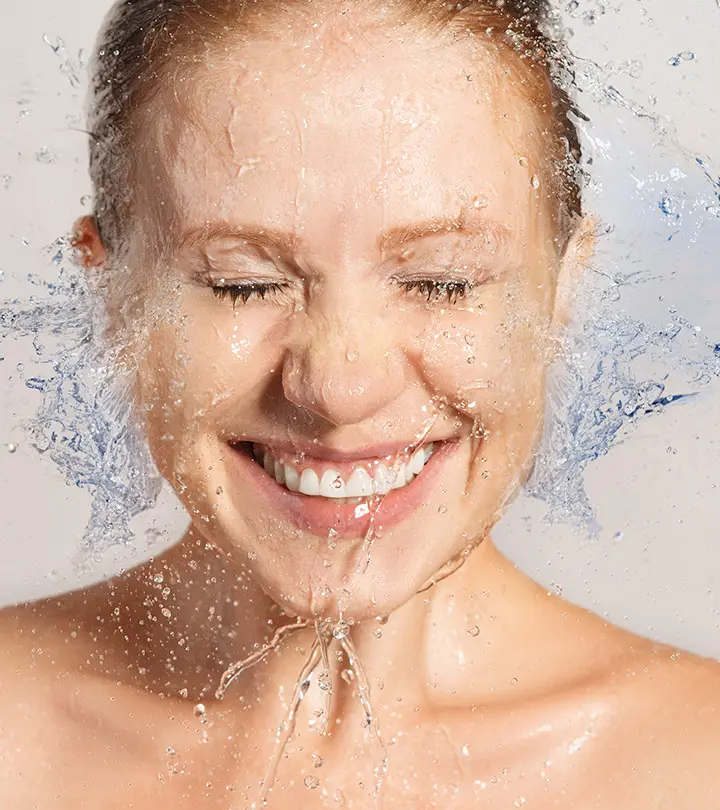
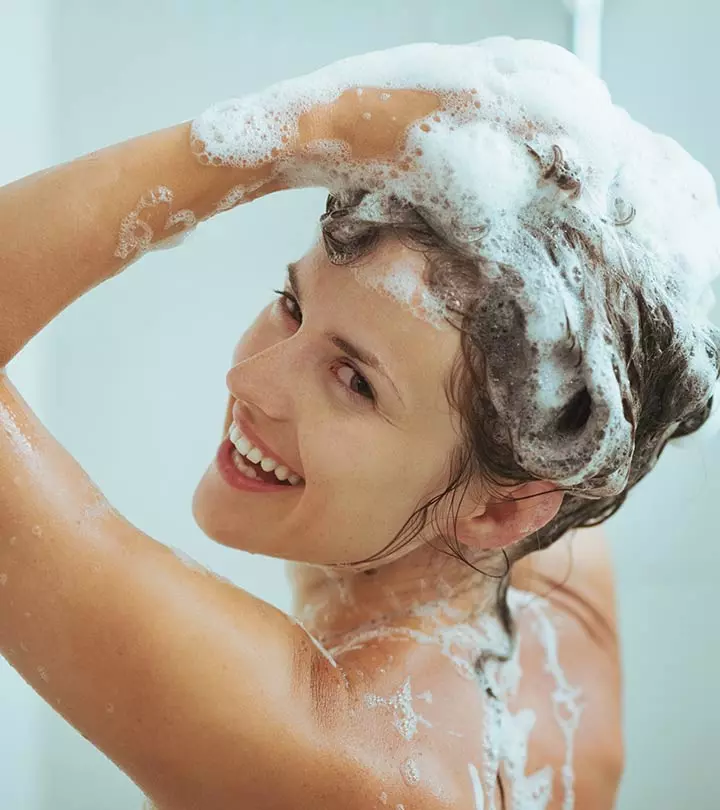
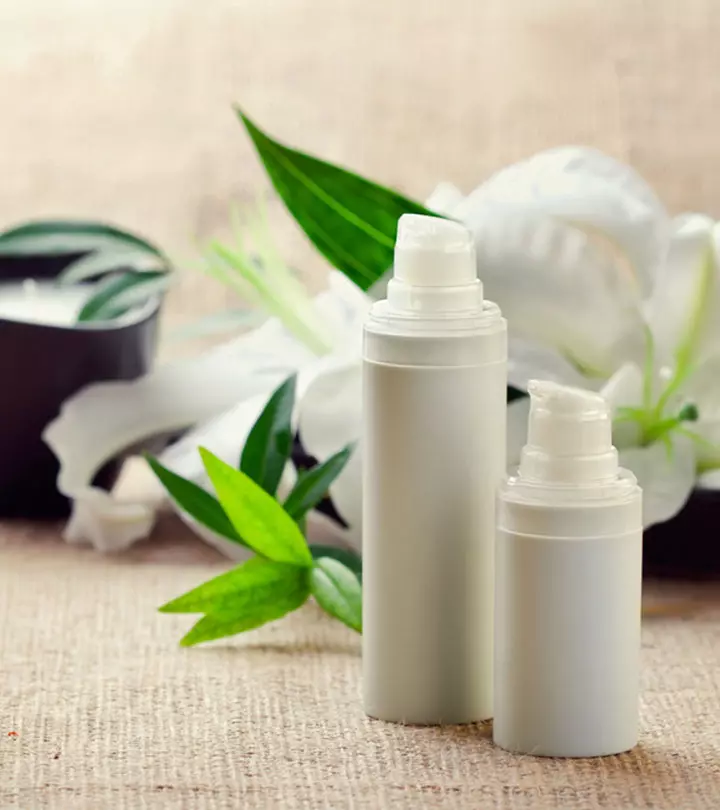
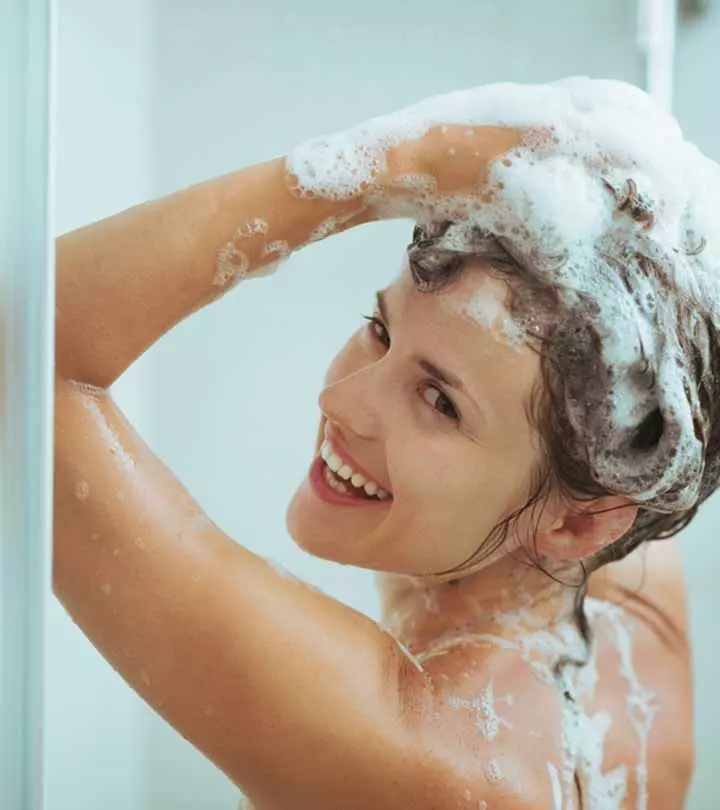
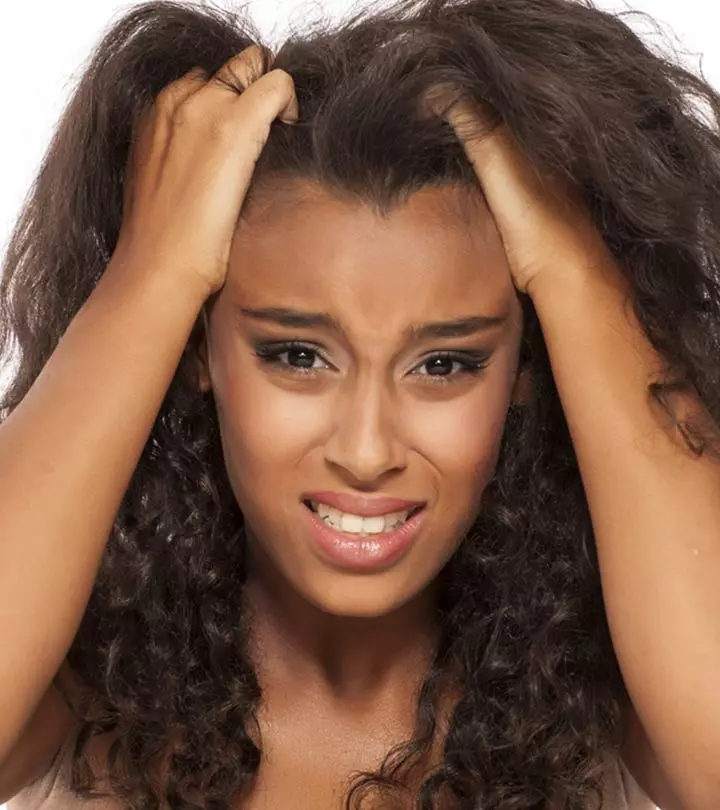

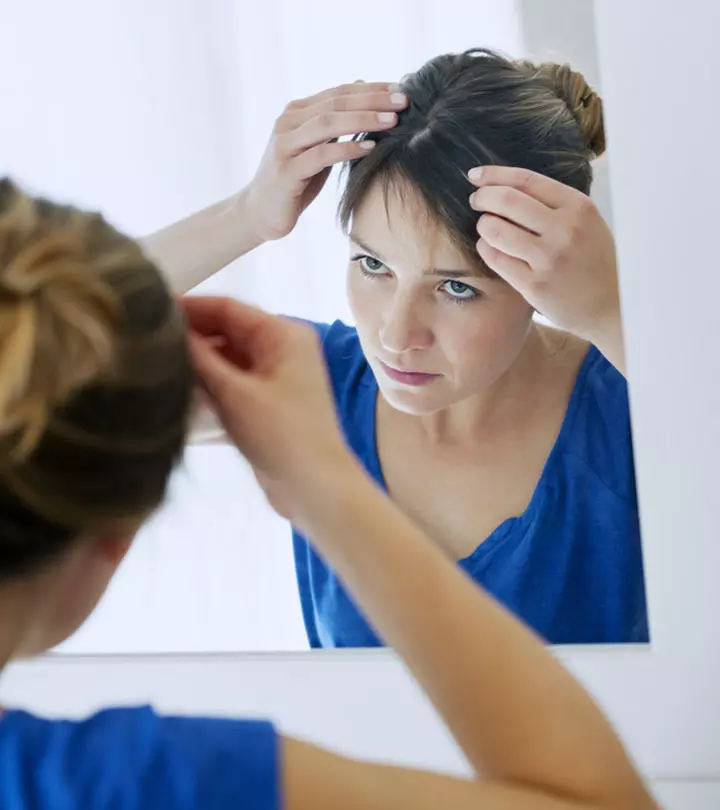
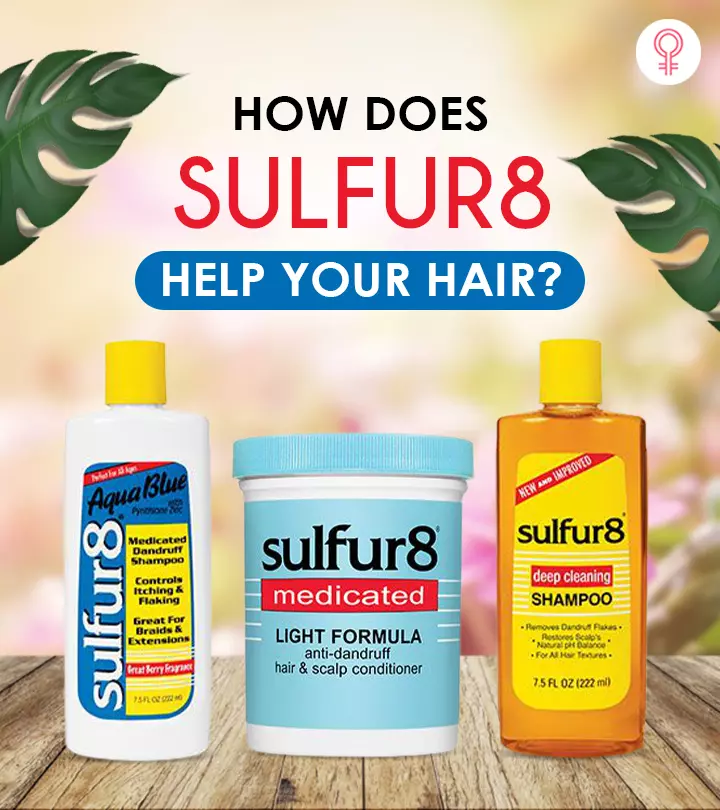
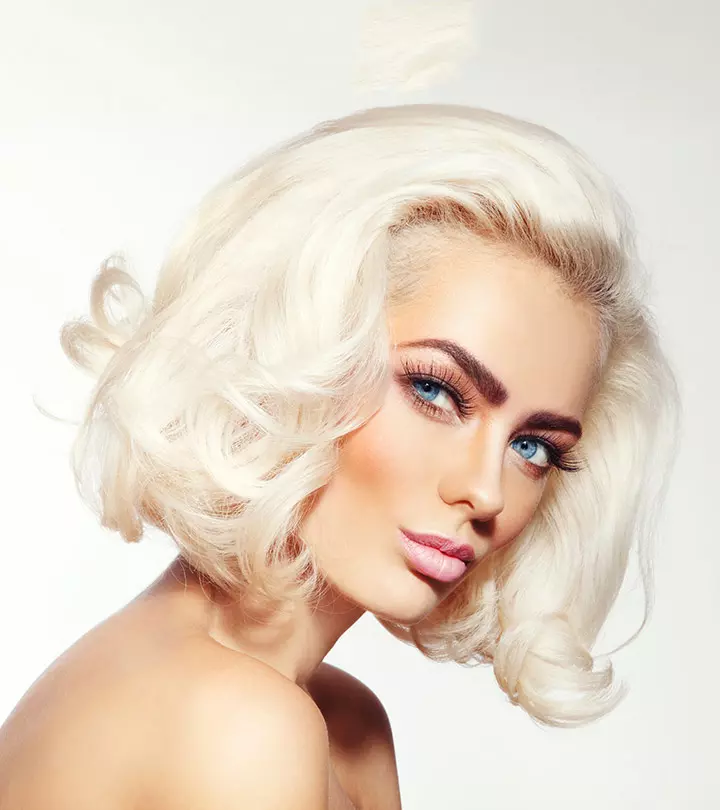
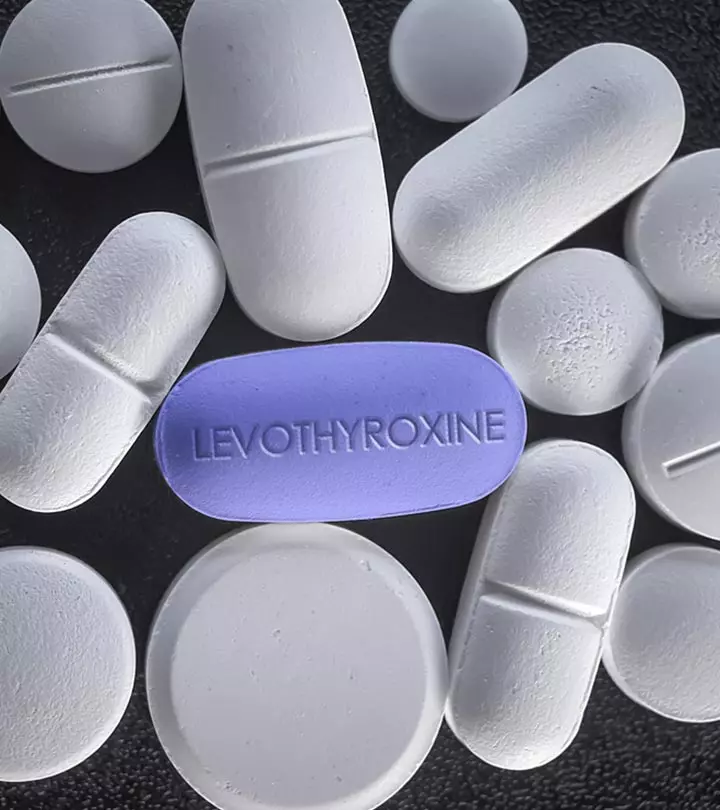
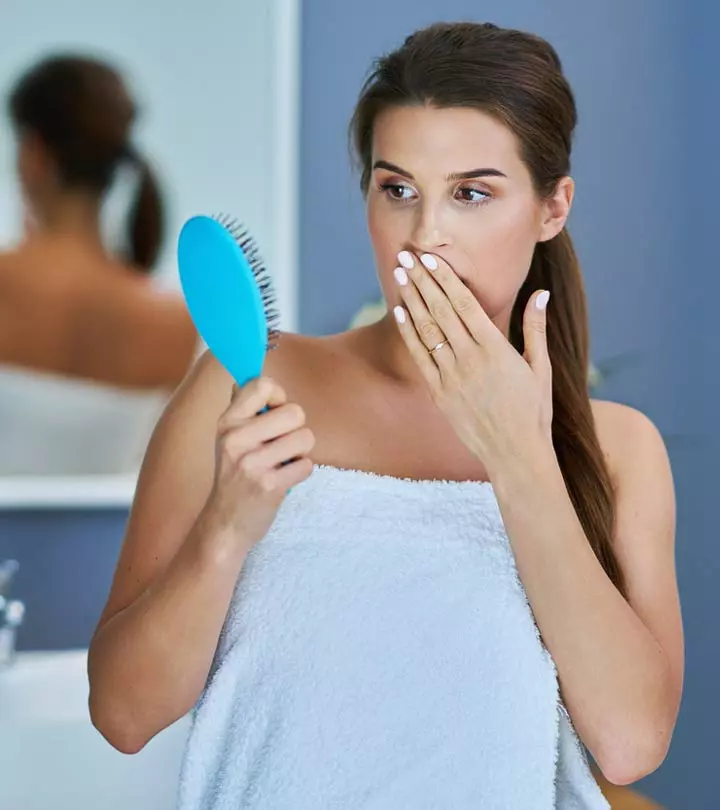
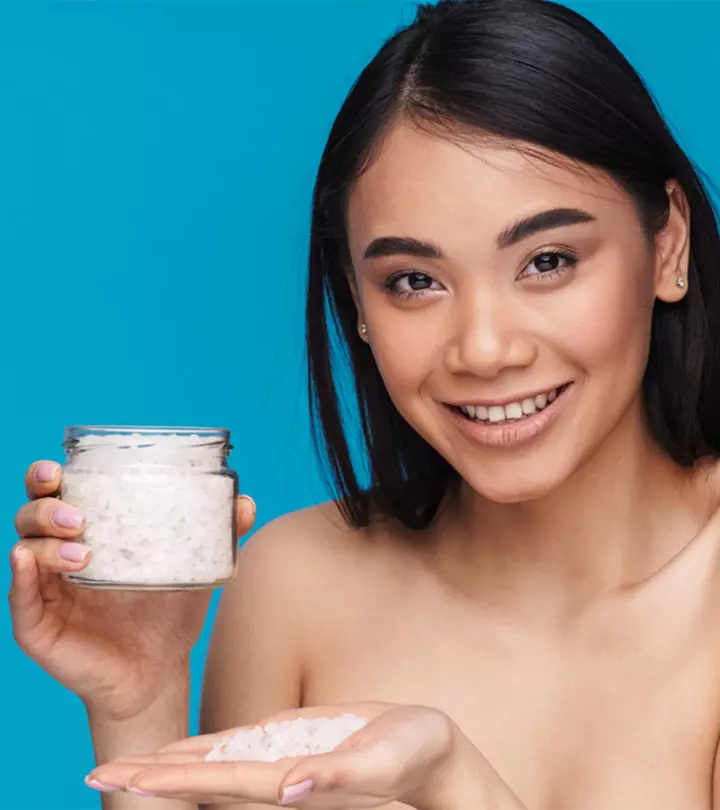
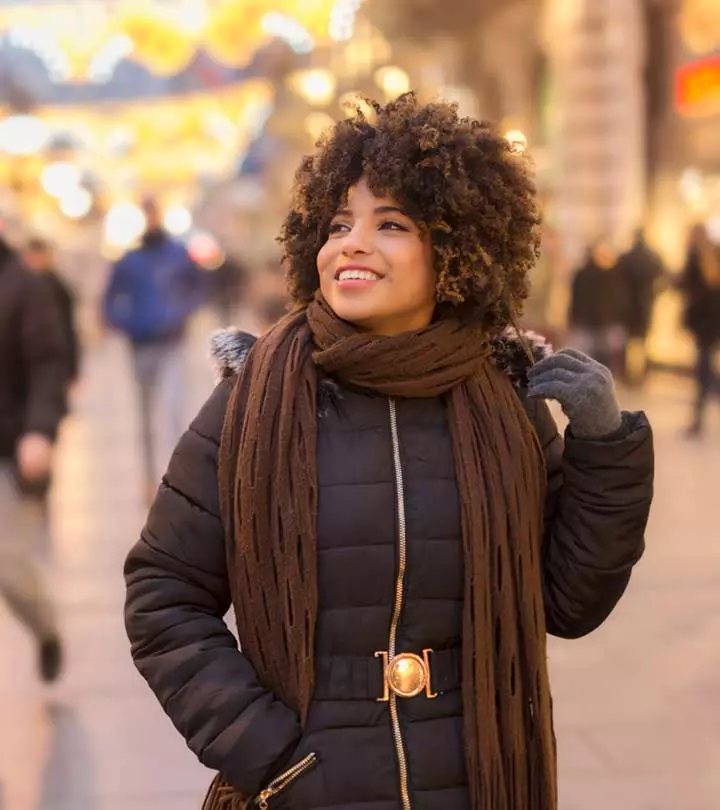
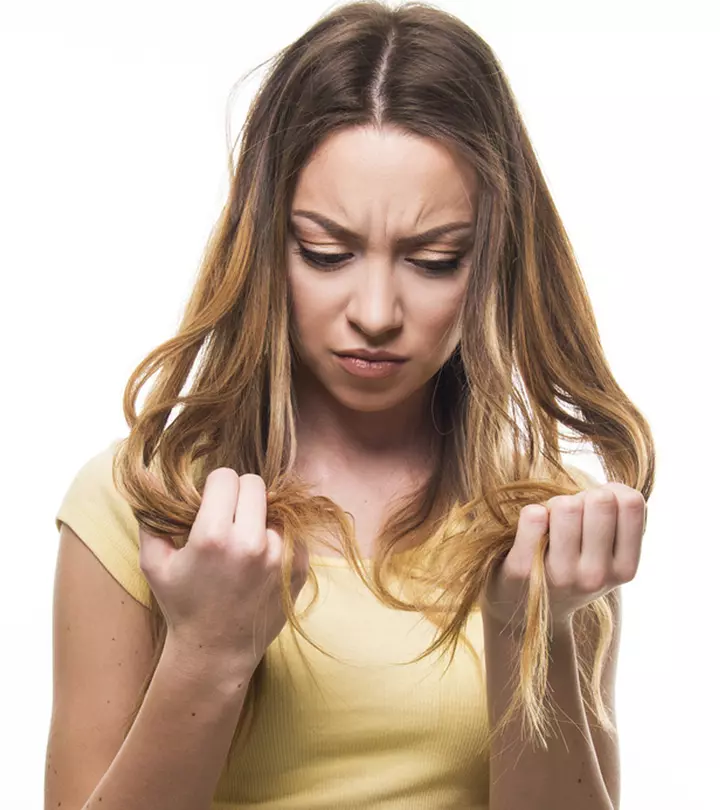
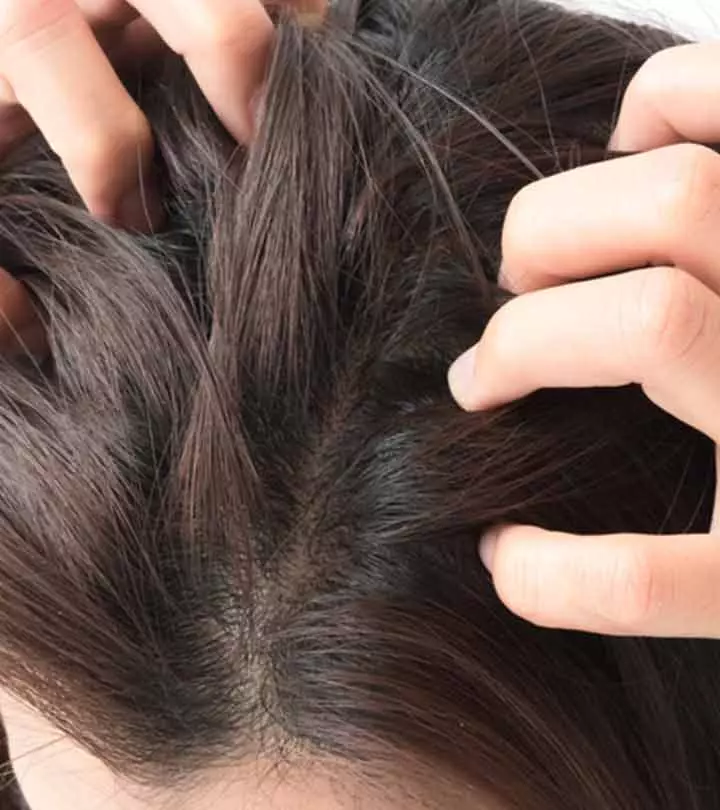

Community Experiences
Join the conversation and become a part of our empowering community! Share your stories, experiences, and insights to connect with other beauty, lifestyle, and health enthusiasts.